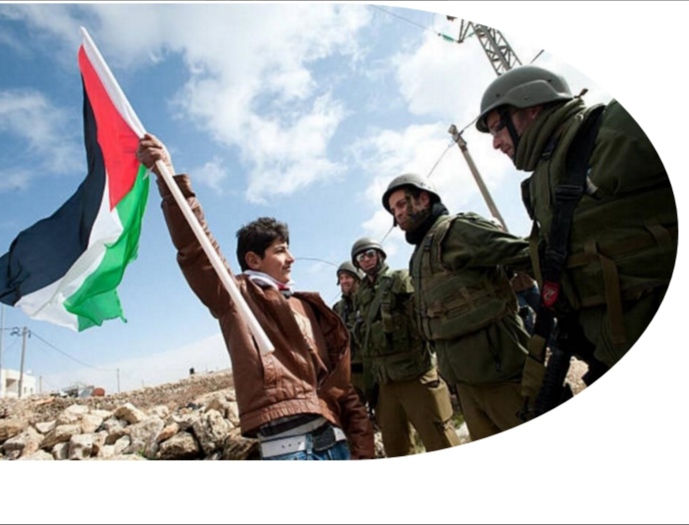Pakistan A hostage society Swat incident
Ahmad Khan
ahmadkhan9421@yahoo.com
(Facts, Consequences and Solutions)
20th June 2024, the evening of Thursday is the another saddest chapter of Pakistan has bloodstained history because Sawat was shaken by terror. This incident is not new of its kind instead it is the part of the series in a chain of terrible fights which Pakistani nation faces since many decades. This incident is the proof of our mass failure to solve the basic reasons of terrorism and extremism. By analyzing the terrible consequences of these incidents, we have to find the real culprits so that we can find an applicable solution to stop these kind of incidents.
There are many saddest incidents occurs on the name of blasphemy of Quran and blasphemy of prophet S.A.W in which many Muslims and non-Muslim has lost their lives. The governments plays a very negative role to bring the public at this bloody edge. After introducing blasphemy act in 1986 by General Zia-ul-Haq, the first notable trial written against a Christian Salamat Maseeh and his uncle Rehmat Maseeh. They had charges of writing insulted lines against Prophet Muhammad (S.A.W). A Christian woman Asia Bibi sentenced to death in 2009 because she had charges of blasphemy against the Prophet Muhammad (S.A.W). Therefore, after a long legal battle, Supreme Court acquitted her in 2018. However, the decisions made by the government has two harsh and dangerous reactions. One is the legal actions against blasphemy accused and the strict sentences by the court brainwashed the public that every accused should have these sentences. And the other horrible reaction occurs when there was a delayed in delivering the punishment by the government because of prolongation of case or due to International pressure, the public consider it Islam by taking the law in their hands. The lack of government interest and the extremist religious scholars played very dangerous role.
In the consequence of this environment, in 2011 the governor of Punjab Salman Taser murdered by his bodyguard Mumtaz Qadri because of his contravention against blasphemy law and his support for Asia Bibi, later Mumtaz Qadri emerged as a hero by public. In March 2011, the minister of minorities Shehbaz Bhatti killed in the allegation of contravention against blasphemy and support of Asia Bibi. In 2014, a Christian couple Shama and Shehzad were killed by a mob in Punjab’s city Kot Radha Kashan. The couple were accused of blasphemy of Quran. In 2017, a student Mishaal Khan of Abdulwali Khan University Mardan killed by fellow students in the allegation of posted blasphemy material on social media. In 2018, Junaid Hafeez a lecturer of Baha-ud-Deen Zikria University sentenced to death in the allegation of liking the blasphemy material on social media against prophet Muhammad S,A,W. In 2020, a Pakistani American Citizen Tahir Naseem were killed in Peshawar during the hearing of religion blasphemy case in courtroom. In 2021, A Siri Lankan’s Citizen Piryantha Kumara killed by the mob in allegation of blasphemy against religion, he worked as a manager in a factory in Sialkot. In 2022, a mentally ill person Mushtaq Ahmad who belonged to district Khanewal, was given a painful death by the mob in the allegation of burning of Quran’s pages.
These kind of incidents shows the intense and violent reaction, which occurs due to allegation of blasphemy against religion, it highlights the need of legal and social reforms stopping these incidents. In Pakistan, the incidents of murders in the allegation against blasphemy had lasting impression on country’s social, political and economic frame. Religious fervor, legal loopholes and the convergence of social and political dynamics fuels this trend, carrying far-reaching and multifaceted consequences. These consequences not only blemished the Pakistan’s image on international level but also wounded the law and order’s situation, social togetherness, and human rights inside the country. The immediate and profound impact of killing in the name of religious blasphemy is the end of the rule of law. When a mob takes justice into its own hands, it undermines the legal system and sets a dangerous example. It promotes a culture of lawlessness and undermines confidence in legal means to achieve justice. The state’s failure to provide protection to the accused and ensure a fair trial undermines the fundamental principles of justice and governance. Killings in the name of religious blasphemy contribute to societal divisions and inflame sectarianism. Such incidents often ditch communities against each other, deepening religious and ethnic divides. Within the Muslim community, differing interpretations of blasphemy laws lead to internal conflicts, further break unity. This social polarization weakens unity and disrupts sectarian harmony, making it challenging to build a consistent society.
The violence executed in the name of religious blasphemy resulting the environment of fear and instability, it yields severe economic consequences, and both national and international investors are concerned about unexpected risks. It closed economic progress, reduces employment opportunities, and stops developmental initiatives. Such incidents often disrupt educational and welfare activities, increase in poverty. Due to these incidents, Pakistan’s image suffers a lot internationally, faces condemnation on a global scale and presenting the country as intolerant and unsafe for minorities. Furthermore, such incidents badly influence tourism and cultural exchanges. They also constitute grave violations of human rights, frequently subjecting victims to brutal extrajudicial punishments, denying those fair trials and due process. This blatant contempt for human rights weakens the foundation of a just society. Furthermore, it inflicts lasting psychological scars on affected families and communities. It undermines the principles of Islam, justice, compassion, and protection of innocent lives. Such incidents are entirely hostile to Islamic teachings and distort the religion’s image. When religious extremism prevails over fundamental Islamic principles, it not only distorts religious beliefs but also raises extremist ideologies.
The horrific incident of blasphemy committed in Swat in the name of religion demands critical scrutiny of those fundamental factors and real culprits who encourage such actions. It is crucial to identify and hold accountable these real culprits to prevent future outrages. In my opinion, the foremost and fundamental culprits of this incident are the religious leaders who have made Pakistan’s nation a hostage, preaching intolerance and provoking violence. Their statements often include hateful speeches and misinterpretations of religious texts. These leaders exploit religious sentiments to mobilize their followers, creating an environment where violence is believed to be permissible.
Immediate arrests should be made against such leaders and they should be prosecuted. Their organizations should be banned. Another major culprit in such incidents are the politicians who use religion for their political gains. Their silence on public actions supporting blasphemy laws or beyond justice, directly encourage mob actions. Such political figures should be immediately removed from their positions and declared incompetent and should be taken severe legal action against them.
The third major culprits in such incidents are irresponsible media persons who report blasphemy allegations without verification, thus fueling mobs. Such individuals and channels should have their media licenses cancelled and face heavy penalties and restrictions. The fourth culprits in such incidents are the police and local authorities who often fail to protect the accused from mob violence due to bias or fear of backlash. Such incidents highlight institutional weaknesses in enforcing the law. These individuals should be immediately suspended, and legal action should be taken against them if proven guilty. The fifth culprits in such incidents are schools and madrassas that propagate extremist ideologies and corrupt young minds. Accountability measures should be taken against these teachers, such institutions should be shut down, and heavy penalties imposed.
A comprehensive multi-faceted approach is necessary to effectively prevent such incidents. This approach should include legal reforms, educational initiatives, community involvement, strengthening of state institutions, and international cooperation. There is a critical need to review laws that are often misused for false allegations and to incorporate severe protective measures against false accusations. Ensure that blasphemy cases are handled by high courts. Judiciary should be empowered and provided with adequate resources to quickly and fairly deal with blasphemy cases. Special tribunals should be established with trained judges to accelerate proceedings and ensure due process for the accused. Legal assistance should be provided to the accused and their right to a fair trial should be forcefully upheld.
Law enforcement agencies often has lack of training to handle blasphemy allegations effectively and sensitively. Comprehensive training programs focusing on human rights, religious sensitivities, and legal protocols are essential. Officers should be prepared with the necessary training and resources to reduce mob violence and protect the accused. Police and local authorities must be held accountable for their failure to protect individuals accused of blasphemy. Efforts should be made to mitigate such failures and ensure the safety of those who accused of blasphemy.
Ensuring accountability will restore public trust in state institutions. To promote tolerance and critical thinking, the educational curriculum should be reformed. Textbooks should emphasize human rights, the rule of law, and peaceful coexistence among diverse religious communities. All books promoting the ideologies of a particular sect should also be strictly prohibited. We must firmly believe that the true teachings of Islam based on justice can counter extremist narratives. Nationwide campaigns aimed at raising awareness about the consequences of mob justice and the importance of due process should be launched. Including media, civil society organizations, and educational institutions in these campaigns can amplify their impact. Religious leaders and scholars hold significant influence in Pakistan. It is essential to involve them in efforts to condemn violence and promote the true teachings of Islam. Promoting interfaith dialogue can foster mutual understanding and respect among different religious communities. Establishing platforms for this purpose can help build a cohesive and tolerant society. State institutions, particularly in law enforcement sectors, should have a comprehensive system to address issues related to blasphemy. The government should demonstrate strong political will to tackle violence related to blasphemy. The government should work to monitor and prevent extremist ideologies and funding. Ensuring the protection of minority communities through legal and social measures is crucial to promoting a just and equitable society. Development programs should be designed to uplift marginalized communities and integrate them into the mainstream.
Extremist religious leaders, opportunistic politicians, irresponsible media, law enforcement agencies, and educational institutions promoting intolerance are all to blame. Islam is a religion of peace. The Quran and Hadith advocate for the protection of innocent lives, justice, and harmony. Extremist ideologies are a blatant distortion of these principles. It is essential for religious scholars to highlight the aspects of Islam that promote compassion and tolerance, fostering an environment where extremism has no place. Addressing this issue requires joint efforts from the government, civil society, religious leaders, and the international community. By upholding the rule of law, promoting tolerance, and protecting human rights, Pakistan can pave the way for a more peaceful, just, and prosperous future. The time to act is now, before more lives are lost. By identifying and punishing those responsible, Pakistan can move towards a society where justice prevails and violence in the name of blasphemy becomes a thing of the past. The path to reforms is challenging but necessary to ensure the protection and dignity of all citizens.



